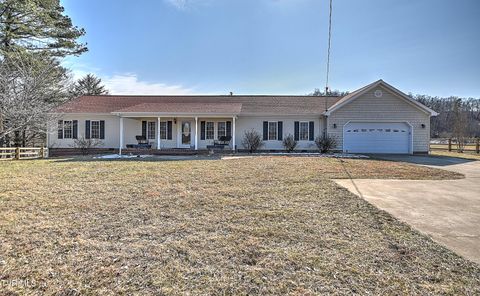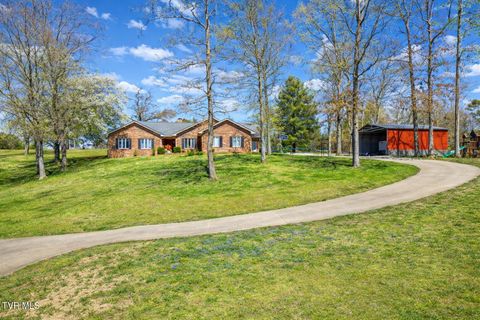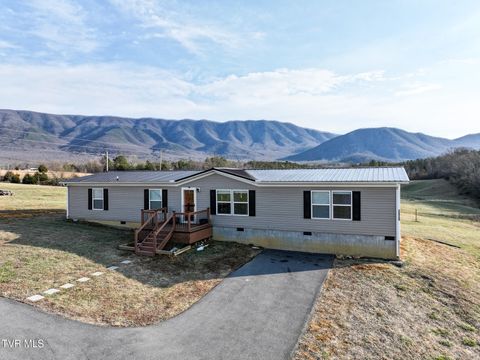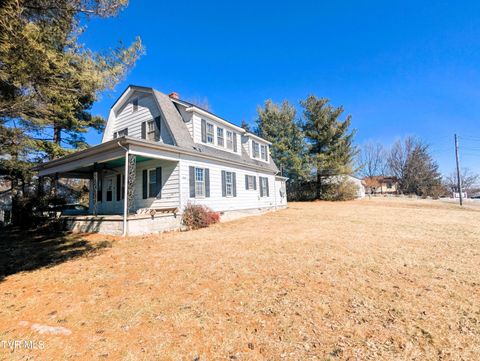Where Do You Want To Reside?
You know how much you can spend on your new home so next up is to do a home search, which we can set up. Whether it’s by zip code, school district, city, etc., we can make it easier to find your perfect house. We can set it up so that it updates whenever another home comes on the market or if the price on a house you’re interested in drops. We also know which homes not yet on the market will be soon and we’ll keep you apprised.
Home Search
We can set up visits as soon as you find something you think you’d be interested in, although you might want to wait until you find several you like so we can look at them in the same day, if possible.
Deciding to Make an Offer
When you’ve found a home you want to make an offer on, you need to consider the following:
- How long has it been on the market?
- Are there other offers?
- What have homes in the neighborhood, comparable to the one you’re considering, sold for?
- Will you ask for help with closing costs from the seller?
- What contingencies do we want to include (we will go into more detail about those later)?
We will also work with you to put together the offer that helps you buy the house at the very best price possible.
Along with the offer, you must also send in an Earnest Money Deposit and Lender’s pre-approval letter.
Earnest Money Deposit
An Earnest Money Deposit is what you would use as collateral if you were in default of the contract. We are required to collect this either at the time of contract or within a couple of days of ratification. It is then put into an escrow account and will apply towards your down payment and closing costs at closing. It will be extracted from your bank account during the contract process so make sure you have the appropriate amount in the account.
Closing Costs
Closing costs will likely be 2.5-3 percent of the price of the home. You also will have lender originations fees and appraisal fees as well as Recording Taxes for your Mortgage and Deed at the county and state level (generally ½-3/4 percent of the cost), settlement company fees and title insurance fees.
You are required to pay for Lender’s Title Insurance for the lender’s portion of the sale and you have the option to buy Owner’s Title Insurance to protect your interest in the property (over 95 percent of clients purchase it is strongly recommended) – a one-time fee that protects your interest in the property forever. All of the title charges together add up to roughly ½-¾ percent of your purchase price. The Survey typically costs between $300-$400 unless you are buying something with a much larger lot. Home Owner’s insurance is another closing cost. Companies often have you pay the first year at closing. Home Owner’s insurance typically runs between $400-$1,500 depending on your house size and the amount of insurance taken out on it. The final major closing cost fee is the beginnings of your escrow account. The Escrow Account is set up as a forced savings account by the lender. You pay a monthly mortgage and in that they collect 1/12th of the insurance for the year and 1/12th of the tax bill for the year. When the tax bill comes bi-annually it is paid from your escrow account, just as is the insurance, paid yearly. At closing they typically collect enough money so that they have at least a couple of months head start on the escrow account, which always assures that you have enough money in the account to make your payments. If you ever sell the house the balance left in your escrow account is returned to you.
When deciding if you want to ask the seller to pay for your closing costs consider that you are essentially just financing the closing costs. If the Seller would accept an offer of $500,000 with $10,000 paid towards your closing costs then they would also accept an offer for $490,000 with zero paid towards closing. If money is tight and you want to keep it as a safety net going into a new mortgage or you want to use the money for upgrades and repairs to the house then getting your closing costs paid for can be a big plus. If you have no concerns about the money and don’t want to borrow more then you need simply don’t ask for help with closing costs. One more thing, if others are interested in the same house you are, you probably wouldn’t want to ask for the sell to pay for closing costs. If you ask and someone else doesn’t the seller would likely go with the one who isn’t in need of closing cost assistance.
At this point, you would a ratified contract, which means contingencies now begin. The lender will need a copy of the contract and any other personal documentation they might need.
Buyer Information Sheet
Once you have a ratified contract you will receive a buyer information sheet within a few days. Please return this as soon as possible as it will help the title company start working on preparing the deeds and the proper transfer paperwork for closing.
If the house that you are buying is an HOA or a Condo Association, the seller will provide the documents with all the rules and regulations. This will also show if the house has any current violations, which the seller is required to fix before closing. Typically documents are accepted first to check for violations and they are then forwarded to you. Simply read any sections that might be important to you. Remember once you receive them you have three days to void the entire deal. If you void on HOA documents you do get your Earnest Money Deposit back.
One your contract is accepted you must have a Home Inspection done, which is generally completed in seven to 14 days for our contingency. We have a list of wonderful inspectors we can recommend and we can arrange it for you or you can schedule it yourself. The inspection, which typically lasts two to four hours, will cost anywhere from $325-$600 depending on the size of the home. The inspector is paid directly at the inspection – this is the only bill (and radon if you do that) that isn’t rolled into the settlement and your closing costs.
If you can be present during the inspection, we encourage you to do so. If you can only be there for part of it, the last hour would be best so you can review the summary. You will learn a great deal about your house and the future care of it by being at the inspection and it’s not a bad idea to take pictures. You will get a report at the end with pictures and links to more information but taking notes is always a good idea. One other thing that buyers like to do during inspections is take any measurements they may want later for furniture or replacement of flooring or painting.
The inspector gives us a full report typically the day after the inspection. We review it and decide what things we want to ask the seller to fix. They don’t have to fix everything you ask for but if we are unhappy with what they are willing to fix we are allowed to void the deal. Inspection requests are typically not a time to ask for cosmetic issues. We typically ask for any repairs that hurt the functionality of the house, such as electricity, heating and air, plumbing, appliances, and any possible roof issues or exterior issues.
A copy of the report and the addendum with the request for repairs must be provided before the end of the deadline. Once they have the addendum we then have until the end of the Negotiation Period to come up with an agreement. We can either come to an agreement on what repairs will be done or get a credit in-lieu of repairs. The credit sometimes works better because you can then use that money to hire your own contractors to do the repairs and make sure they are done the way you want. If we can’t come to a deal during the Negotiation Period we have two days during the “purchaser election” period to void the contract based on our unhappiness with the condition of the house. We DO NOT get our Earnest Money Deposit back if we void.
Radon Inspection
If you choose to complete a radon test the cost is generally around $100. The radon test is placed in the basement and tests air quality. If the house has a buried basement it’s a good idea to test for Radon but if no part of the basement is underground you probably shouldn’t test for radon. If the house tests over the 4.0 pCi/L then we will ask the seller to remediate for Radon. Radon Remediation typically costs around $800-$850. Part of our request would be for them to verify with a retest that the remediation system they put in the house is working.
Financing Contingency
Typically we’ll have 21 days for our Financing Contingency. The only way to get out of the contract on a Financing Contingency is if we get a rejection letter for the bank. If we get rejected for financing then we can get out of the deal and get our earnest money deposit back.
After 21 days the seller can ask us to remove the contingency and provide a loan approval letter. If we haven’t received loan approval yet then we don’t have to remove it. If they get tired of waiting the seller’s only recourse is to send us a notice saying that if we don’t remove within three days the deal is void. At this time we would have three days to remove the contingency or move on from the deal.
At any time we can switch lenders or switch loan programs as long as we don’t delay settlement or cost the seller money. It is our recommendation that we lock in with a lender within the first week after ratification and stay with that lender as changing lenders late in the game can be disastrous. We also strongly recommend against using an internet lender or someone from out of the area. Many times we have seen lenders from out of the area over promise and under deliver. Whenever a closing is delayed it’s almost always with a lender from the internet or out of town. This process goes much smoother if you have a lender that we know and trust to get the job done.
Termite Inspection
Generally this is only about $35 and sometimes the seller pays this cost and sometimes the buyer pays. If you choose to order it, then we will order it for you. The inspection, 80 percent of which come back with no issues, has to be done within 30 days of closing. If a need for any type of treatment for termites is found the seller is required to treat before closing. This is non-negotiable and is a lender requirement.
Survey
You also pay for a survey as part of your closing costs. Typically cost is between $300-$400. You are not required to get a survey done, however, if you don’t have one done then your title insurance policy will have an exception on it for the boundaries of the property. Survey’s come in handy if you plan on doing any type of fence, deck or patio work in the future as you will need it for permits and HOA applications.
Appraisal
The appraisal contingency will typically be 21 days from ratification. The lender orders the appraisal through a third party and typically you pay for the appraisal tas part of your closing costs. Results come back in 10-17 days after ratification. The appraiser will walk through and around the house, take measurements, a few pictures and note any upgrades. They are working to assess the value of the home compared to recent sold homes around the area.
If the appraisal comes in less than the contract price we have the right to void the deal if the seller won’t come down to the appraised value. The lender will only give a loan based on the appraised value. Options include: 1) The difference you would have to come up with in cash. There may be some instances that we are willing to pay more than the appraised value because we really want the house; 2) In most instances we can get the seller to come down to the appraised value; 3) Worst case is that we negotiate a deal in the middle. Appraisers are looking at sales within a mile of the home that have closed in the last 90 days. If they don’t have enough data they will go back slightly longer and look at a slightly larger area if need be. Most houses appraise at the sales price exactly because appraiser has the sales price going into the appraisal. If we can’t come terms then we have the option to void the deal.
Preparing for Settlement:
Home Owner’s Insurance
Once through inspection and appraisal you will want to secure home owner’s insurance. You can get recommendations from the lender if you don’t have a trusted insurance provider already. Most insurance agents will ask you to pay one year up front at closing. If you pay them before closing then make sure you let us know so you don’t get double charged on the closing statement.
Utilities
As you prepare for closing remember to switch over your utilities. We can assist by getting you the utility company information. You will want to set up service to start for the day of closing so that you don’t have any interruption in service during the transfer.
Walk Through
We will do a final walk-through, typically a day or two before closing. It will usually take about 30 minutes to an hour. We will walk the house and make sure that everything is in the same condition that it was at home inspection. If there were any repairs to be made then we make sure that all repairs are completed and looking good. At final walk through the house will be empty. It has to be in broom swept condition. All appliances, lighting, fans, curtain rods, blinds typically stay unless otherwise agreed upon.
Settlement
We sometimes don’t get your bottom line until the day of or day before closing. The best way to get a close estimate is to talk to the lender in the week leading up to closing. They can give the best estimate on what you will need for closing. All funds at closing either need to be wired to the title company or in a certified check made out to the title company. If you bring too much they can write you a refund check. If your check is a little short then you can write a personal check up to $1000 for the difference.
For Settlement you will need to bring your license and your certified check (unless you wired it). You will receive your keys at Settlement, as well. After closing the house is yours unless we have a rent back agreement in place.
SETTLEMENT STATEMENT (Hud 1)
Your numbers will be on the left side of the page. Page 1 is the summary of all numbers. The top section is the debits that you owe and the bottom is the credits to you. Line 103 is all of the settlement charges added together from Page 2.
Page 2 typically consists of lender charges, escrows, insurance pre-payment, title company charges, transfer taxes and then miscellaneous at the bottom (surveys, termite inspections, HOA transfer fees, any other charges). The other notable charges on the HUD-1 will be pro-rations for taxes and HOA. If the seller has pre-paid taxes or HOA then you will credit them back for the time that you will own the house. If they have owned the house for any days that haven’t been paid for then they will give you a credit towards those future dues payments.Your bottom line of cash needed to close is at the bottom of Page 1 at line 303.
The last thing to remember for closing is to make sure we get any parking space numbers, house or garage codes, mailbox numbers or any other questions you have for the seller answered.



